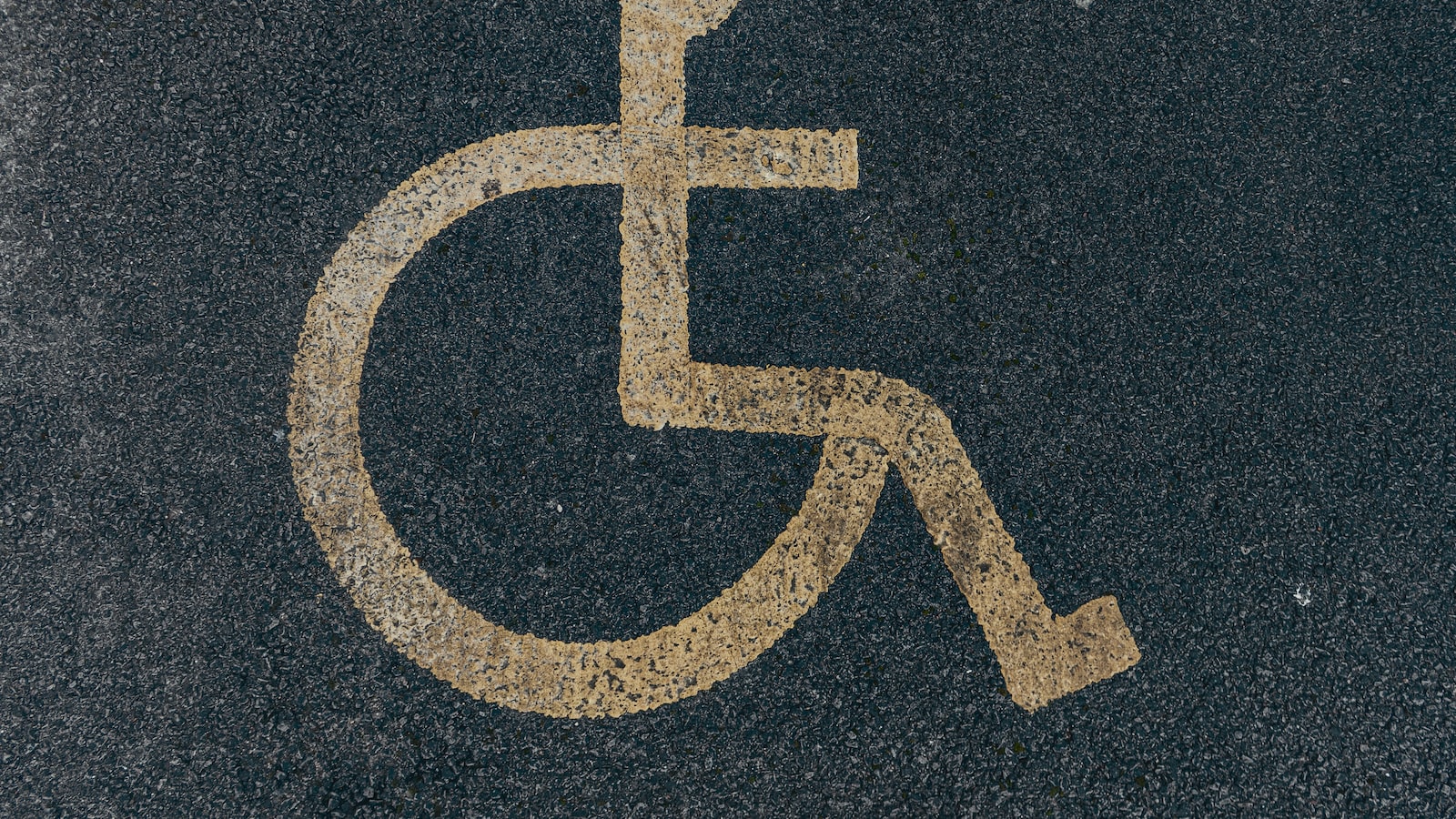Welcome to the world of disability benefits, where understanding meets compassion and a helping hand is always extended. In a society that strives for inclusivity, it is crucial for us to unravel the intricacies of this complex system to ensure that every individual with a disability receives the support they need. Whether you are someone in search of assistance, a family member, or simply a curious soul, we warmly invite you to embark on this enlightening journey with us. Throughout this guide, we promise to unravel the enigmatic world of disability benefits in the most comprehensive, creative, and friendly way possible. So, let us set forth on this adventure, leading towards a realm where barriers are shattered, dreams are nurtured, and solidarity is celebrated.
Table of Contents
- Understanding Disability Benefits: A Comprehensive Guide
- Navigating the Complex World of Disability Benefits
- Exploring the Different Types of Disability Benefits
- Qualifying for Disability Benefits: Eligibility Criteria Unveiled
- Unraveling the Application Process for Disability Benefits
- Crucial Tips for Maximizing Your Disability Benefits
- In-depth Analysis of the Social Security Disability Insurance Program
- Shedding Light on Supplemental Security Income: An Essential Resource
- Revealing the Most Frequently Asked Questions About Disability Benefits
- Proven Strategies for Appealing a Denied Disability Benefits Claim
- Important Factors to Consider When Choosing a Disability Benefits Attorney
- Q&A
- The Conclusion

Understanding Disability Benefits: A Comprehensive Guide
Exploring Disability Benefits
Welcome to our comprehensive guide on understanding disability benefits! If you or someone you know is living with a disability, it’s important to know that there are resources and support available to help navigate through the challenges. In this guide, we will provide you with valuable insights, tips, and information about disability benefits, so you can gain a better understanding of what to expect and how to make the most of these crucial provisions.
Types of Disability Benefits
Disability benefits come in various forms, each tailored to meet specific needs. From government programs to private insurance options, there are avenues to explore based on your circumstances. These benefits can include financial support, healthcare coverage, and assistance with day-to-day activities. Understanding the different types of disability benefits available is essential in identifying which ones may be applicable to your situation.
- Medical Coverage: One of the key benefits available is access to medical coverage. This can help cover doctor visits, hospital stays, medications, therapies, and more. It’s important to familiarize yourself with the eligibility requirements and application processes for medical coverage to ensure you receive the necessary support.
- Income Support Programs: Disability benefits may also include income support programs that provide financial assistance to individuals with disabilities and their families. These programs offer a lifeline for those facing financial hardships due to their conditions, helping individuals maintain an acceptable quality of life.
- Assistive Devices and Services: Many disability benefits incorporate provisions for assistive devices and services. These may include mobility aids, assistive technology, home modifications, vocational training, and other support services that can enhance an individual’s independence and overall well-being.
Navigating the Application Process
Applying for disability benefits can be a complex and time-consuming process, but don’t be discouraged! We’re here to guide you through it. From gathering necessary documents to filling out forms and submitting medical evidence, we’ll walk you through each step to help ensure a smooth application experience.
- Documentation: Proper documentation is crucial when applying for disability benefits. Be prepared to provide medical records, doctors’ notes, test results, and any other relevant documentation that supports your case. Remember, the more comprehensive your documentation, the stronger your application becomes.
- Understanding Eligibility: Eligibility criteria for disability benefits vary depending on the program. Familiarize yourself with the specific requirements and guidelines to determine if you meet the necessary qualifications. Seeking assistance from professionals, such as disability lawyers or advocates, can also provide valuable guidance during this process.
- Appealing a Denied Claim: It’s not uncommon for disability benefit applications to be denied initially. If this happens, don’t lose hope! You have the right to appeal the decision and present additional evidence to support your case. Understanding the appeal process and timelines is essential to increase your chances of a successful outcome.
We hope this guide serves as a valuable resource on your journey of understanding disability benefits. Remember, you’re not alone in this process, and there is support available to help you navigate the complexities. From financial assistance to valuable services, disability benefits can make a significant difference in improving your quality of life. Stay informed, stay empowered!

Navigating the Complex World of Disability Benefits
Living with a disability can be challenging and overwhelming, but understanding the complex world of disability benefits can provide the much-needed support and assistance you deserve. In this guide, we aim to demystify the system, break down key concepts, and equip you with the knowledge to navigate your way to the benefits you are entitled to.
Eligibility and Application Process:
- Start by determining your eligibility for disability benefits. Certain criteria are set by the government and vary depending on the specific program.
- Collect all relevant documents and medical records that support your disability claim. Ensure you have a thorough understanding of the required documentation before beginning the application process.
- Fill out the application accurately and provide all the necessary information. It’s essential to be detailed and specific when describing your disability and limitations.
- Submit your application and any supporting documents within the designated timeframe. Keep copies of everything for your records.
Types of Disability Benefits:
- Social Security Disability Insurance (SSDI): A federal program that provides financial assistance to individuals who have worked and contributed to Social Security but are now unable to maintain substantial employment due to a disability.
- Supplemental Security Income (SSI): Another federal program that supports disabled individuals with limited income and resources.
- Workers’ Compensation: Typically managed on a state level, this program offers benefits to workers who sustain a work-related injury or illness.
- Veterans Benefits: The Department of Veterans Affairs provides various disability benefits for veterans who have service-connected disabilities.
Appealing a Denial:
- If your disability benefits application is denied, don’t despair – you have the right to appeal the decision.
- Review the denial letter carefully to understand the reasons behind the decision.
- Seek legal advice if necessary to assist you throughout the appeals process.
- Provide additional evidence, such as updated medical records, to strengthen your case.
- Be patient and diligent during the appeals process, as it may take time to successfully challenge the initial denial.
Navigating the world of disability benefits can feel like a daunting task, but with the right guidance and understanding, you can increase your chances of obtaining the financial support you need. Remember, there are resources and organizations available to assist you in every step of the way.
Exploring the Different Types of Disability Benefits
When it comes to navigating the world of disability benefits, it can feel like you’re lost in a maze. But fear not, because we’re here to be your guiding light on this journey. In this comprehensive guide, we’ll unravel the intricacies of disability benefits and take you through the different types so you can have a better understanding of what’s available to you.
The first type of disability benefit is Social Security Disability Insurance (SSDI). This program provides financial assistance to individuals who have worked in the past but are now unable to continue due to a disability. To qualify for SSDI, you must have earned enough work credits and meet the Social Security Administration’s definition of disability. It’s important to note that SSDI benefits can vary depending on your average lifetime earnings and the severity of your disability.
Another type of disability benefit is Supplemental Security Income (SSI). Unlike SSDI, SSI is not based on your work history but is instead determined by your income and resources. This program is designed to provide financial support to disabled individuals with limited income and resources. Eligibility for SSI is determined by factors such as your financial situation, living arrangements, and the severity of your disability. It’s worth noting that SSI benefits can also be affected by other sources of income and assistance.
Lastly, we have Worker’s Compensation, which is a benefit provided to employees who sustain work-related injuries or illnesses. This type of disability benefit is typically administered by state programs and varies depending on the state you reside in. Worker’s Compensation benefits can include medical expenses, rehabilitation costs, lost wages, and compensation for permanent disabilities. To qualify for Worker’s Compensation, it’s crucial to report your injury or illness to your employer promptly and follow the necessary documentation procedures.
Qualifying for Disability Benefits: Eligibility Criteria Unveiled
When it comes to disability benefits, understanding the eligibility criteria is essential. We believe that everyone deserves support and care, which is why we are here to guide you through the process. In this comprehensive guide, we will take you through the key factors that determine if you qualify for disability benefits. Whether you are seeking assistance for yourself or a loved one, this information will empower you to navigate this complex system.
Medical Eligibility
One crucial aspect of qualifying for disability benefits is meeting the medical eligibility requirements. The Social Security Administration (SSA) evaluates various medical conditions to determine if they significantly impact your ability to work. From chronic illnesses to severe injuries, any condition that prevents you from engaging in substantial gainful activity may make you eligible for benefits. Remember, the disability must persist for at least 12 months or be expected to result in death.
Economic Eligibility
In addition to meeting the medical criteria, economic eligibility plays a substantial role in determining your eligibility for disability benefits. The SSA evaluates your work history, income, and assets to determine whether you meet the financial requirements. To qualify, you must have earned sufficient work credits based on your age and the number of years you have worked. If you have limited income and resources, you may also be eligible for Supplemental Security Income (SSI) benefits. Remember, each program has specific criteria that must be met to receive assistance.
By understanding the eligibility criteria for disability benefits, you can ensure that you or your loved one receives the support you deserve. Remember, seeking professional advice is crucial for a successful application. Our team of experts is here to assist you throughout the process, answering any questions you may have. Everyone deserves the chance to thrive, and we are committed to helping you navigate this journey with ease.
Unraveling the Application Process for Disability Benefits
Applying for disability benefits can feel like navigating through a maze. You may find yourself overwhelmed and confused by the complex process. But fear not! Our comprehensive guide is here to shed light on the steps involved and help you understand the ins and outs of obtaining the support you deserve. So, grab a cup of tea, sit back, and let’s unravel the mysteries surrounding disability benefits together!
Step 1: Gathering Your Documentation
- Start by collecting important documents, including medical records, doctor’s notes, and any supporting evidence of your condition.
- Submit all necessary paperwork, such as a completed Disability Benefit Application and the Adult Function Report.
- Don’t forget to include any relevant work history or educational information.
Step 2: Understanding the Evaluation Process
- An expert team will review your documents and assess your eligibility for disability benefits.
- Be prepared for a medical evaluation, which may involve meeting with a healthcare professional to discuss your condition in detail.
- Remember, do not exaggerate or understate your limitations during the evaluation. Honesty is key!
Step 3: Patience and Persistence
- After submitting your application, it’s essential to be patient. The evaluation process can take some time.
- Stay proactive by regularly checking the status of your application and following up with relevant authorities if necessary.
- Keep in mind that if your application is initially denied, it doesn’t mean it’s the end of the road. You have the right to appeal, so don’t give up! Seek professional advice and continue to fight for the benefits you deserve.
By understanding and following these steps, you’ll be well-equipped to navigate the sometimes daunting application process for disability benefits. Remember, you’re not alone on this journey. Our team is here to support you every step of the way. So, let’s get started and unlock the door to the benefits you’re entitled to!
Crucial Tips for Maximizing Your Disability Benefits
When it comes to navigating the world of disability benefits, it can often feel overwhelming and confusing. However, understanding your options and knowing how to maximize your benefits is essential. To help you on your journey, we’ve compiled some crucial tips that can make a significant difference in securing the benefits you deserve:
- Know your rights: Familiarize yourself with the laws and regulations that govern disability benefits in your country. Understanding your rights can empower you to advocate for yourself more effectively.
- Document everything: From medical records to correspondence with insurance providers, keeping detailed and organized documentation is vital. This includes noting down all doctor’s appointments, prescribed medications, and any challenges you face due to your disability. This documentation can serve as strong evidence to support your disability claim.
- Seek professional guidance: Navigating the complex world of disability benefits is not a journey you have to undertake alone. Seek the assistance of a disability lawyer or advocate who specializes in these matters. They can guide you through the application process, help gather necessary evidence, and navigate any potential appeals.
Remember, understanding and maximizing your disability benefits is a vital component of securing the financial support you need. By knowing your rights, documenting everything, and seeking professional guidance, you can greatly increase your chances of receiving the benefits you deserve. Stay determined and don’t hesitate to reach out for assistance when needed!
In-depth Analysis of the Social Security Disability Insurance Program
Discovering the complexities of the Social Security Disability Insurance (SSDI) Program is like unraveling a thrilling mystery novel. Let’s delve into its depths and decipher the key components that make it a lifeline for those with disabilities. Understanding this program is not only beneficial for individuals seeking support but also for anyone who wants to champion inclusivity and empathy within society.
1. Eligibility Criteria: The SSDI Program provides vital financial assistance to individuals who are unable to work due to a severe disability. To qualify, applicants must meet specific criteria, such as having a disability that is expected to last at least one year or result in death, and having accumulated enough credits through their work history. Exploring the nuances of these eligibility requirements can empower both applicants and their loved ones to navigate the application process with confidence.
2. Application Journey: Embarking on the SSDI application journey is like embarking on a quest for justice. As you dive into this topic, we’ll uncover valuable insights, tips, and red flags that can guide you through the process. From gathering necessary medical documentation to completing the extensive application form, each step is crucial. We’ll also address common challenges applicants may face and offer suggestions on how to overcome them, ensuring you remain tenacious throughout the journey.
3. Appeals and Recipients: The SSDI Program is committed to ensuring that deserving individuals receive the support they need. However, sometimes applications are initially denied. Fear not, as we’ll unravel the intricate layers of the appeals process, providing guidance on crafting a compelling case. Additionally, we’ll explore the lives of current SSDI recipients, showcasing the profound impact this program has in empowering individuals to overcome adversity and live fulfilling lives.
Ready to dive into the world of SSDI? Grab a cup of coffee, get cozy, and join us as we unravel the mysteries of this invaluable program. By understanding the ins and outs of the Social Security Disability Insurance Program, we can foster a more inclusive society, where no one is left behind. Stay tuned for an enlightening exploration of disability benefits, filled with stories, practical advice, and a dose of inspiration.
Shedding Light on Supplemental Security Income: An Essential Resource
Eligibility Criteria: Who Qualifies for SSI?
SSI is an invaluable resource for those who have limited income and resources due to a disability. Understanding the eligibility criteria is crucial, so here are some key points:
- Must be aged 65 or older, blind, or disabled
- Have limited income and resources
- Be a U.S. citizen or fall within specified immigration status
Remember, meeting these requirements is just the first step towards accessing the support you deserve.
The Application Process: Navigating the Road to SSI
Applying for SSI involves several important stages. To simplify the process, we’ve broken it down for you:
- Gather necessary documents: This includes proof of age, disability, income, resources, and citizenship status.
- Complete the application: You can apply online, over the phone, or by scheduling an appointment with your local Social Security office. Be prepared to answer questions about your medical condition and work history.
- Provide medical evidence: Supporting documentation from healthcare professionals is crucial in establishing your disability.
- Wait for a decision: Once you’ve submitted your application, the Social Security Administration will review your case and inform you of their decision.
Remember, we’re here to support you throughout the application process. Reach out to our friendly team if you have any questions or concerns.
Revealing the Most Frequently Asked Questions About Disability Benefits
Are you curious about disability benefits? We’ve got you covered with answers to the most frequently asked questions. Whether you’re just starting to navigate the world of disability benefits or you’ve been receiving them for a while, it’s always helpful to have a comprehensive understanding of the process and what you’re entitled to.
What are disability benefits?
- Disability benefits are financial assistance provided by the government to individuals who are unable to work due to a physical or mental impairment.
- These benefits are designed to help disabled individuals meet their basic needs, such as paying for housing, medical expenses, and daily living costs.
- It’s important to note that disability benefits are not limited to physical disabilities; they also cover mental health conditions that prevent an individual from maintaining employment.
How can I qualify for disability benefits?
- To qualify for disability benefits, you must have a medically documented impairment that is expected to last for at least twelve months or result in death.
- Your disability must prevent you from engaging in any Substantial Gainful Activity (SGA), which refers to work that provides a certain level of earnings set by the Social Security Administration (SSA).
- The SSA will also review your work history to determine if you have accumulated enough work credits to be eligible for disability benefits.
How do I apply for disability benefits?
- The process of applying for disability benefits can be complex, but it’s essential to start by gathering all necessary documentation, including medical records, doctor’s statements, and employment history.
- You can then apply online through the Social Security Administration’s website or by scheduling an appointment to apply in person at your local SSA office.
- Be prepared for a thorough evaluation of your medical condition and its impact on your ability to work. It’s important to be honest and detailed when providing information to support your claim.
Remember, these answers are not exhaustive, but they serve as a helpful starting point in understanding disability benefits. If you have more specific questions or concerns, it’s always advisable to consult with a disability benefits attorney or reach out to your local Social Security Administration office for guidance tailored to your situation.
Proven Strategies for Appealing a Denied Disability Benefits Claim
Having a disability can significantly impact one’s quality of life, and for this reason, disability benefits exist to provide much-needed financial support. However, the road to approval for these benefits can be challenging, and there are times when applications are denied. If you find yourself in this situation, don’t lose hope! There are several proven strategies you can employ to increase your chances of a successful appeal.
1. Review the denial letter: When your disability benefits claim is denied, take the time to thoroughly review the denial letter provided by the insurance company. Understand the reasons they have given for the denial and make note of any additional documentation they may require for reconsideration. This step is crucial in determining which aspects of your claim need strengthening.
2. Gather supporting medical evidence: In many cases, the lack of adequate medical evidence is the main reason for a denied claim. Consult with your healthcare provider and request an updated medical examination to present a comprehensive evaluation of your condition. Collect all relevant medical records, test results, and specialist reports to strengthen your case. Remember, the more detailed and specific the documentation, the stronger your appeal will be.
3. Seek professional assistance: Navigating the appeals process can be complex, which is why seeking the help of experienced professionals can greatly enhance your chances of success. Consider consulting a disability attorney or a reputable advocacy organization that specializes in disability claims. They can guide you through the process, offer expert advice, and ensure that your appeal is properly presented, thus increasing your likelihood of a favorable outcome.
Important Factors to Consider When Choosing a Disability Benefits Attorney
So, you’ve reached a point where you need assistance in navigating the complex world of disability benefits. Choosing the right attorney to guide you through this process is crucial, as they will play an integral role in securing the benefits you rightfully deserve. Here are some important factors to consider when selecting a disability benefits attorney:
Experience: One of the key factors to consider is the level of experience the attorney has in handling disability benefits cases. Look for attorneys who specialize in this area of law and have a proven track record of successfully representing clients. An attorney with substantial experience will possess valuable insights and strategies to maximize your chances of a favorable outcome.
Reputation: Take some time to research the reputation of different disability benefits attorneys. Look for testimonials or reviews from past clients to gauge their satisfaction with the attorney’s services. A positive reputation often indicates a reliable and trustworthy attorney who will prioritize your best interests throughout the entire process.
Communication: Effective communication is paramount when it comes to working with a disability benefits attorney. During your initial consultations, pay attention to their willingness to listen to your concerns and answer your questions. Choose an attorney who makes you feel comfortable and understands the importance of keeping you informed about the progress of your case. Open, honest, and transparent communication will ensure that you remain an active participant in the decision-making process.
Remember, choosing a disability benefits attorney is a significant decision that can greatly impact the outcome of your case. Take the time to thoroughly consider these important factors to ensure you are partnering with the right attorney who will fight tirelessly on your behalf.
Q&A
Q: What are disability benefits and who is eligible to receive them?
A: Ah, disability benefits! They’re like a superhero’s cape for those facing challenges. But who’s eligible to don this cape, you ask? Well, anyone who has a qualifying disability that essentially hinders their ability to work or engage in daily activities. So, if you’ve got the right needs and a heart full of hopes, you might just be eligible!
Q: How does one qualify for disability benefits?
A: To qualify for these incredible benefits, you’ve got to meet a few criteria. First off, you need to have a disability that’s expected to last at least a year or result in your untimely departure (let’s hope not!). Secondly, you must have earned enough work credits to fit the bill. But worry not, dear friend, our guide will show you all the ins and outs to help you navigate the eligibility maze!
Q: What types of disability benefits are available?
A: Brace yourself, because disability benefits come in different shapes and sizes! You’ve got the Social Security Disability Insurance (SSDI) program for those who’ve paid their dues by working, and the Supplemental Security Income (SSI) program for folks with limited income. Each of these superheroes has its own set of superpowers, ensuring that financial assistance is available to those who need it most.
Q: Is it difficult to apply for disability benefits?
A: Well, let’s be honest, the application process can be a bit like embarking on a quest, but fear not! Our guide is here to hold your hand and guide you through the labyrinth. We’ll provide you with tips, tricks, and all the secret passwords you need to make the process as smooth as silk. So, together, we’ll slay those application dragons and claim your well-deserved benefits!
Q: How much can someone receive in disability benefits?
A: You’re probably thinking, “Will these benefits be enough to save me from the villainous grasp of financial woes?” The answer is a resounding yes! The amount you can receive depends on various factors, like how much you’ve worked and earned in the past. Though it may not make you as wealthy as a dragon’s hoard, it will certainly alleviate some of life’s burdens and keep you afloat.
Q: Can you work while receiving disability benefits?
A: Ah, the million-dollar question! While receiving disability benefits, you can indeed work, my friend. In fact, the Social Security Administration has a little magic trick up its sleeve called “work incentives.” It allows you to test the waters and earn some extra income without losing your benefits entirely. It’s a win-win situation, really!
Q: What if my disability improves over time? Can I still receive benefits?
A: Superhero capes come with mighty powers, and that includes adaptability! If your disability gets better and you’re able to join the workforce once more, fret not. The Social Security Administration has got your back, as they provide a safety net with programs like “Ticket to Work.” This way, you can ease back into the workforce without losing your benefits immediately. How cool is that?
Q: Can disability benefits be affected by other forms of income?
A: It’s always a good idea to keep your fellow allies, like other forms of income, in the loop. Depending on the type of disability benefits you receive, additional income could play a role in determining how much green you’ll receive. But hey, don’t let that deter you! There are always strategies and helpful tips to maximize your benefits and ensure your financial security.
Q: How long does it take to start receiving disability benefits?
A: We understand that time is of the essence when it comes to your financial well-being. While the exact timing may vary, the process from application to receiving benefits can take some time. It’s like waiting for your favorite superhero to swoop in and save the day, but hey, patience is a virtue, right? The important thing is to start the journey and get your application in as soon as you’re ready!
Q: What resources and support are available for individuals navigating disability benefits?
A: You’re not alone on this superheroic quest! Numerous resources and support systems are in place to lend a helping hand. From online guides, community outreach programs, to advocacy groups ready to fight for your rights, the world of disability benefits is filled with support and guidance. So, strap on your superhero boots and let’s go, we’ve got your back every step of the way!
The Conclusion
Thank you for embarking on this enlightening journey with us through the world of disability benefits. We hope that our comprehensive guide has shed light on the intricacies of this important topic, leaving you feeling empowered and informed.
Navigating the labyrinthine realm of disability benefits can often be a daunting task, with countless forms, procedures, and acronyms to decipher. But fear not, dear reader! Armed with this newfound knowledge, you are now equipped with the tools to confidently tread upon the path towards securing the support you or your loved ones deserve.
We understand that disabilities are diverse and vary in their impact on individuals’ lives. Every story is unique, and every disability benefits journey is a personal one. However, we firmly believe that knowledge is power, and understanding the ins and outs of disability benefits can truly make a difference.
As you embark on this journey, we encourage you to always remember that you are never alone. There is an expansive network of resources, organizations, and individuals dedicated to providing guidance, support, and advocacy for those seeking disability benefits. Reach out, connect, and embrace the community that surrounds you. Together, we can create a world that celebrates diversity and promotes inclusivity.
So, dear reader, go forth with confidence and determination. Advocate for your rights, and never hesitate to seek the support you deserve. The road may not always be smooth, but armed with knowledge and a resilient spirit, you are destined to overcome any obstacle that comes your way.
Remember, disability benefits are not merely a handout; they are a crucial lifeline that can empower individuals to lead fulfilling lives and contribute their unique gifts to society. By understanding them, we can foster a more compassionate and inclusive world.
Once again, we thank you for joining us on this enlightening adventure. May your path be paved with understanding, empathy, and unwavering support for all those in need. Remember, no disability can overshadow your extraordinary abilities.






